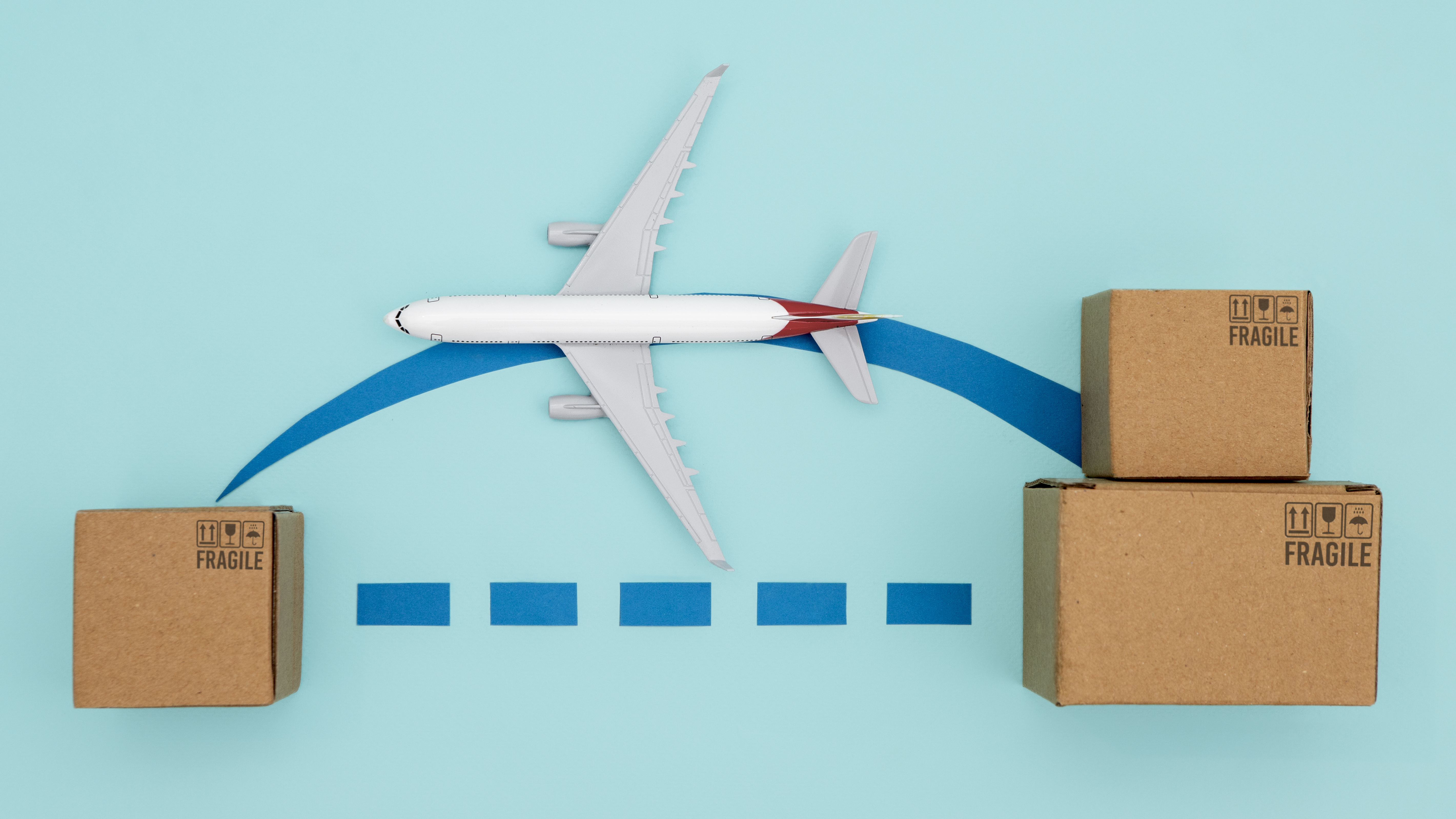
Air cargo, commonly referred to as air freight, involves the shipment of goods and products using aircraft. This mode of transport is essential to domestic trade and logistics, allowing for the swift and effective distribution of items over long distances. Air cargo significantly contributes to the domestic economy by linking businesses, suppliers, and consumers nationwide, while supporting the movement of high-value and time-sensitive products.
Under our Air Cargo services, we have many divisions.
Door pickup-to-door delivery
We pick up the shipment from the customer's location and deliver the shipment to the end customer’s door.
Port pickup-to-Port delivery
We pick up the shipment at a certain airport and deliver the shipment to the destination airport.
Port pickup to Door Delivery
We pick up the shipment at a certain airport and deliver the shipment to the end customers door.
Door pickup to Port Delivery
We pick up the shipment at the customers location and deliver the shipment to the destination airport.
There are two categories of Air Cargo that we provide and they are as follows.
The first category is General Cargo, which encompasses non-perishable and non-hazardous items such as electronics, auto parts, textiles, machinery and consumer products. These goods are typically shipped in standard packaging and do not necessitate any special handling or environmental conditions during transit.
The second category is Specialized Cargo, which consists of items that demand particular handling, packaging, or environmental controls. This includes perishable goods like fresh produce and pharmaceuticals that require temperature regulation, hazardous materials such as chemicals and flammable substances that must comply with stringent safety standards and must have the necessary documentation, valuable items like precious metals and artwork that need enhanced security measures and oversized cargo which includes large machinery that requires tailored loading and unloading solutions.
The logistics of air cargo transportation that we use is intricate and encompasses various participants, such as airlines, freight forwarders, customs officials and ground handling personnel. Typically, the process adheres to a series of defined steps.
The shipper reaches out to us to secure cargo space. We typically act as intermediaries, consolidating shipments and facilitating seamless transportation.
We undertake effective packaging even during rainy seasons and labeling is done for all our shipments which is crucial for safeguarding cargo and ensuring adherence to international shipping regulations. This is particularly important for hazardous or perishable items.
As an Air cargo service provider, we necessitate the submission of various documents, which include the Air Waybill (AWB), serving as the contractual agreement between the shipper and the carrier. Additionally, a commercial invoice is required, providing information regarding the shipment's value and quantity. A packing list is also essential, detailing the contents of the shipment.
The cargo is delivered to the airport, where it is subjected to security inspections and scans before being loaded onto the aircraft. For oversized or fragile items, specific equipment and protocols are employed by us.
Cargo is transported to the destination airport via aircraft. This can occur within the cargo compartments of passenger aircraft specialized or on freighter planes.
Air cargo is moved using two categories of aircraft.
Passenger Planes
Numerous airlines take advantage of the belly hold of passenger aircraft to transport goods in addition to baggage.
Dedicated Freighters
Dedicated Freighters are arranged on demand. Dedicated freighters are aircraft specifically engineered for the purpose of transporting cargo. They are equipped with large cargo doors, reinforced flooring, and specialized loading systems.
Our Air cargo service provides numerous unique benefits.
Speed
The primary advantage of our air cargo service is its speed, which makes it the most rapid transportation option available. This characteristic is particularly beneficial for shipments that require timely delivery, including medical supplies, perishable items, and critical manufacturing parts.
Reliability
Our Airlines maintain rigorous schedules, guaranteeing the prompt transportation of goods. This dependability is essential for companies that depend on just-in-time (JIT) inventory management systems.
Security
Airports and our airlines implement rigorous security measures to minimize the likelihood of theft or harm to valuable cargo.
Decreased Inventory Expenses
Quicker transit times enable companies to sustain more streamlined inventories, thereby lowering warehousing and storage expenses.
Unmatched Quality and Cost Efficient
Experience a higher level of service excellence in comparison to rival offerings and experience greater value at a reduced cost through our cutting-edge pricing strategy.
Technology is revolutionizing the air cargo sector by enhancing both efficiency and transparency. Significant developments encompass:
Digitalization
Digitalization is being embraced by our airlines and our freight forwarders through the use of digital platforms for booking, tracking, and documentation, which minimizes paperwork and enhances visibility.
Automation
The implementation of automating warehouses, robotic handling systems, and drones will enhance the efficiency of cargo operations.
Blockchain
Blockchain technology improves transparency and security within the supply chain by creating an immutable record of transactions.
The air cargo sector is on the brink of considerable expansion and change. Key trends to monitor include:
Support E-commerce
The surge in online shopping is significantly increasing the demand for air cargo services, especially for expedited shipments.
Increase Automation
The adoption of artificial intelligence, machine learning, and robotics is expected to further improve efficiency and lower expenses.
Increase Resilience and Adaptability
The COVID-19 pandemic underscored the critical need for resilience within supply chains. Consequently, the industry is prioritizing the development of more adaptable and resilient operations to better endure potential future disruptions.